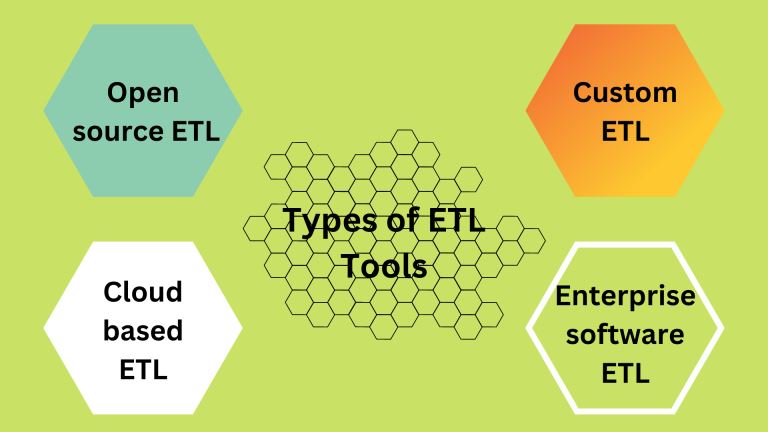Is Data Warehouse ETL as Important as Everyone Says? Find out
Many people wonder if data warehouse ETL is as important as everyone says. They've got no clear answers, and that's where we come in. We have done our research and written this article to inform you about the importance of data warehouse ETL.
There are several reasons why data warehouse ETL is essential; it improves the performance of the real-time systems, it's easy to extract data into a single format, and it helps to identify missing or redundant data. Additionally, it provides valuable information by analyzing data, helps maintain a unified data repository, and helps normalize data from different sources.
Read on to learn more about the factors you should consider when choosing a data warehouse ETL.
Is Data Warehouse ETL as Important as Everyone Says? Find out
Businesses are heavily investing in data warehouses. They are doing it for rapid analysis and business intelligence to gain a competitive advantage over other companies in the same industry. While data warehouse provides robust analytics capabilities and quality reports, a common issue faced by most businesses using data warehouse technology is the need to refresh them periodically using ETL (Extract, Transform, Load) tools. Examples of such devices are SAP Data Services to get the latest information from their source systems, such as SAP or Oracle databases. So how important is ETL?
Importance of data warehouse ETL.
1. Improves the Performance of Real-Time Systems
Since a data warehouse ETL solution can be used to clean and integrate data from many different sources, it provides the perfect framework for real-time analysis and reporting. It also increases system performance as well as scalability. In short, Data Warehouse ETL becomes more critical with increased volumes of data with the need for faster response times, or both.
2. The Extraction of Data Into a Single Format Is Made Easy
Extracting data is crucial in establishing a Data Warehouse. And you must choose the best option for your needs. An ETL process helps to transform source data from various sources into a single format so that it can be easily stored and accessed as needed. Depending on your situation, many different technologies are available to do this extraction process in the most effective way possible.
3. It helps to Identify Any Missing or Redundant Data
Data warehouse ETLs are essential for identifying redundant data or missing data. Data warehouse ETLs use pattern recognition to find and correct these abnormalities to make more accurate predictions about future scenarios. It makes data warehouses more usable, as a precise source will allow managers to plan better for future growth in demand. The reliability and predictive power are also helpful when there are questions about accuracy - it provides a dependable answer where one might not otherwise exist.
4. Ability to Provide Useful Information by Analyzing Data
Data warehouse ETL is necessary because it links different data sources, allowing us to use data from disparate sources and combine them for analysis. ETL stands for Extract, Transform, Load - this is a process by which we take data from its original environment and put it into another. It may also have to manipulate or aggregated to fit in with the other sources.
5. Helps in Maintaining a Unified Repository of Data
It allows a company to have one cohesive repository with the aggregated data organized without manually entering it. What you might not know is that Data Warehouse ETL is just as important as everyone says it is because when there's a power outage or natural disaster, backups are meaningless if they don't include the Data Warehouse ETL process.
6. It Helps in the Normalization of Data From Different Sources
Data warehouses are crucial because they help keep data normalized. They also make better decisions based on data analysis. It is why ETL (Extract, Transform, Load) is one of the most critical tasks you'll be performing as part of your daily workflow as a Data Warehouse Developer or Data Warehouse Architect. If not done correctly, without good ETL skills, your company will suffer from bad decisions due to incomplete data sets.
Factors to consider when choosing the right Data Warehouse ETL
Every business needs to ensure they have the correct data warehouse ETL tool. It will help to manage their data, no matter how small or large it may be. Having the wrong tool could cost you more time and money than necessary. Not to mention potentially causing severe damage to your reputation if you're not careful about what you choose.
What are the types of ETL tools?
The chart below shows the main types of data ETL tools you should consider for your data warehouse ETL.
Factors to consider in choosing the right data warehouse ETL.
1. Ease of Integration
The data warehouse ETL tool that you choose should be able to integrate with your current platform. So it will make extracting data and transforming it as easy as possible. It should also be easy for non-technical users like the marketing team. So consider which areas of your company the data warehouse ETL tool would most help and decide based on that.
2. Flexibility
Suppose your data warehouse has integrations or is updated. Considering how your current ETL tool might affect those integrations and updates would be best. Generally, organizations with an established data warehouse will want a tool to grow with them and adapt to changes. Business owners must remember that flexibility is critical when selecting the right data warehouse ETL tool for their business.
3. Cost
Consider costs for the entire life cycle of your project. The best solution may be something you can afford today but not tomorrow. Deciding on more advanced features and expensive hardware, software, or services might help you meet the needs of your business down the road if they continue to grow. Evaluate how your budget is affected over time with different options and find the one that works best for you.
4. Ease of Use
The more difficult it is for your employees or partners to use the software, the less likely they will be to use it. Knowing how easy it is for your staff or partners to perform tasks will also help you gauge the training you need and how much time your team needs with the software.
5. Execution Speed
The speed at which your data warehouse ETL tool runs reports and jobs is crucial. This is because your data warehouse should ideally be the single source of your needed data. If queries take too long to execute, you can't access any data because of delays in loading or retrieving it from the databases. Your warehouse will not be effective. It would help if you had a fast enough tool for whatever you're working on and strong enough to handle any size queries.
6. Scalability
Choose an ETL tool that can grow with your company. Whether it is through scalability, being easily adapted for data from other vendors, or being open source, it needs to be able to meet your business's future demands. Also, look for providers that have all of their documentation available online and can offer demonstrations so you can explore them before making a purchase.
What are the Key Steps in the ETL Data Integration Process?
A modern organization needs access to accurate data to make well-informed decisions that will keep it competitive and profitable. Have a look at the table below.
| Extract | Moves raw, unstructured data to a temporary data repository so that it can be refined. |
| Clean | Before the transformation, clean data is extracted from an unstructured data pool, ensuring its quality. |
| Transform | Converts data from one system to another to create the perfect target structure. |
| Load | Loads the data into a data warehouse to properly process and use it. |
| Analyze | Businesses can gain insight from correctly configured data by analyzing big data within the warehouse. |
Conclusion
Data Warehouse ETL is often overlooked as an essential task. It can help with data extraction, transformation, and loading so you can create a report for your company. If your company doesn't use this software already, it might be time to look into it. You can reach out to Guru solutions for data warehouse ETL services.













